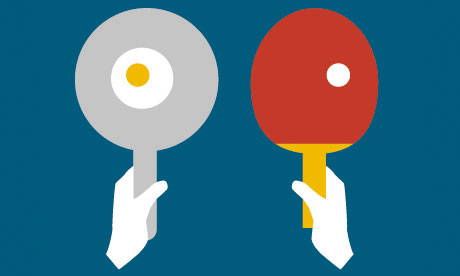
There's a one-in-two chance your mind is on something else as you read this sentence. A study by Harvard psychologists in 2010 asked people to track their thoughts, feelings and activities at random intervals, and discovered that they spend 46.9% of their time doing one thing while thinking about another. They also found this daydreaming makes them more unhappy than if they were paying attention to the present moment, even when it's unpleasant.
This probably sounds counterintuitive, but distracting ourselves from difficult experiences seems to exacerbate, rather than reduce, the stress they cause. When the mind wanders, it's usually drawn into negative ruminations or projection, making us feel worse than if we simply focused on our actual experience.
Gently bringing our minds back to the present can help us let go of these unhelpful interpretations and see situations for what they are, rather than getting pulled into angry, fearful or depressing thoughts about them. When what we're doing is pleasant, this means we can enjoy and appreciate life much more. We can savour the sensations of a tasty meal, rather than wolfing it down absent-mindedly, missing the moment as we fret about an earlier conversation, or how we'll manage our next set of tasks.
When the experience is unpleasant, such as when we're unwell, paying attention without being judgmental helps us to manage sensations such as discomfort or irritation without fruitlessly trying to wrestle them away, or getting stuck in self-defeating thoughts, such as "I hate feeling like this", or "What if I never get better?"
By noticing what's happening with gentle curiosity, we start to work constructively with the events of our lives. We cultivate awareness and resilience, creating the space for wise responses. Unfortunately, our minds tend to drift off without permission. "The faculty of voluntarily bringing back a wandering attention, over and over again, is the very root of judgment, character and will," William James wrote 120 years ago, "but it is easier to define this ideal than to give practical directions for bringing it about."
Directions are available, however, in the form of meditation practices that have been part of eastern traditions for several thousand years. These practices train us in mindfulness – the art of paying attention – and there's strong evidence that this helps us in a range of ways. From managing low mood, anxiety and pain to enhancing creativity, choice and compassion, hundreds of scientific studies suggest mindful awareness is beneficial to our wellbeing.
Thanks to the recent explosion of interest in mindfulness, attitudes to meditation are changing. Mindfulness-based cognitive therapy is now recommended as an NHS treatment for recurrent depression, while mindfully "noticing" is one of five ways to wellbeing highlighted in a report from the government-backed analysts at Foresight. Mindfulness isn't a quick fix – like any skill, it requires commitment and practice – but with persistent gentle effort, we are able to retrain our brains and bodies towards feeling more peaceful and content.
The practice is best learned from an experienced guide, but here are a few ways to get started in "real time management":
• Pay attention to your breathing. Find a quiet space and concentrate on the flow of your breath, in and out. When your mind begins to wander, gently bring it back to noticing your breathing.
• Bring awareness to sensations of touch. Our bodies are always in the present moment. Consciously feeling your feet on the floor, your bottom on a chair, or your clothes against your skin can bring your mind back too.
• Watch your speed. Three times a day, for one minute, simply stop what you're doing and notice what's happening in your mind and body. Becoming more familiar with your mind's habitual patterns can help you to work with them much more skilfully.
• Ed Halliwell leads mindfulness courses and workshops at The School of Life and in Sussex. He is co-author of The Mindful Manifesto: How Doing Less and Noticing More Can Help Us Thrive in a Stressed-Out World (Hay House). mindfulnesssussex.co.uk. To order The Mindful Manifesto by Dr Jonty Heaversedge and Ed Halliwell for £8.49 (RRP £10.99), visit theguardian.com/bookshop or call 0330 333 6846.

